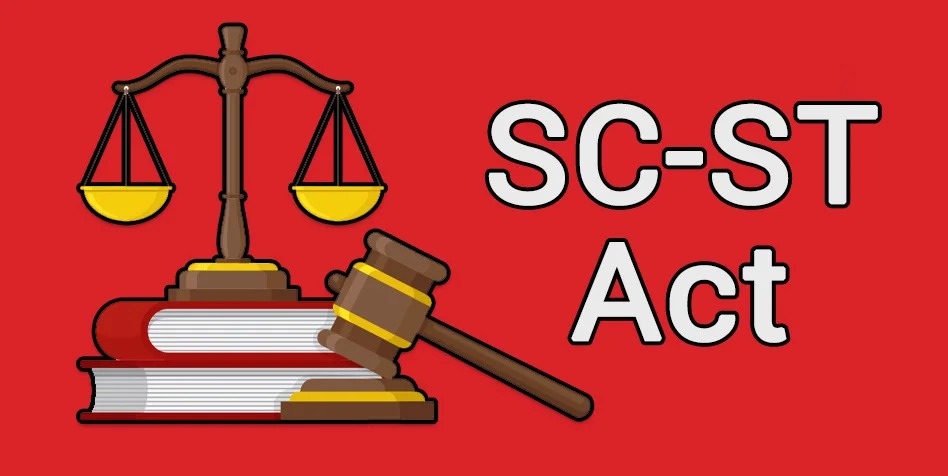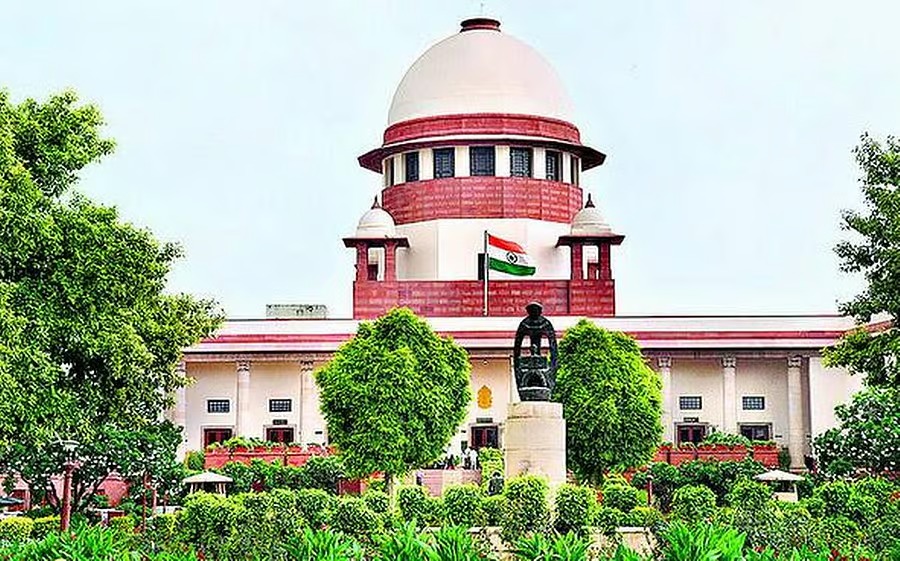Vishnu Chandra Gupta, J.@mdashHeard Sri A.R. Khan, learned Counsel for the petitioner and Sri Abhay Veer Singh, learned AGA for the State. By means of this petition u/s 482 Cr.P.C. petitioner has prayed for quashing the charge-sheet and also prayed to stay the further proceeding of Criminal Case No. 79-A/2003 now numbered as 946 of 2006, Case Crime No. 74 of 1998, u/s 120-B IPC read with section 302 IPC, P.S.-Kandhaie, District Pratapgarh pending in the Court of Chief Judicial Magistrate, Pratapgarh.
2. Learned AGA informed that no appeal has been filed against the judgment of acquittal passed in Sessions Trial No. 404 of 2003. Opposite party No. 2 in respect of personal service did not appear or file any counter-affidavit.
3. The brief facts for deciding the petition are that the First Information Report has been lodged by one Arvind Kumar, opposite party No. 2 to this petition in Police Station Kandhaie, district Pratapgarh which was registered as Case Crime No. 74 of 1998, u/s 302 IPC against Vinod Kumar Singh, Kashi Naresh, Ram Bahadur Singh, Deo Kali, Manoj Kumar Singh, Anand Kumar Singh and Sudha Singh. One accused has been arrayed as Chachiya Sas which later on found to be Smt. Kanti. After investigation of this case charge-sheet has been filed against the accused persons. A separate charge-sheet has been filed against Vinod Kumar Singh and Sudha Singh, u/s 120-B IPC read with section 302 IPC as on 28.3.2003, The charge-sheet against other co-accused was separately filed. Sudha Singh absconded and did not appear to face the trial. In sessions trial No. 404 of 2003 the accused Anand Kumar Singh, Manoj Kumar Singh, Kashi Nath, Vinod Kumar Singh, Ram Bahadur, Smt. Kanti and Smt. Deo Kali were acquitted for the charge levelled against them u/s 302 read with section 149 IPC. As the present petitioner was absconding, so she could not be prosecuted.
4. The petitioner by this petition sought for quashing of the proceeding pending against her in Criminal Case No. 79-A of 2003 now as 942 of 2006, u/s 120-B read with section 302 IPC in connection with aforesaid Crime No. 74 of 1998 and also sought stay of implementation of non-bailable warrant issued against the petitioner by Chief Judicial Magistrate. Learned Counsel for the petitioner submitted that when case ended in acquittal of all the accused the trial of the present applicant if allowed to continue would be an abuse of process of law. He relied upon the judgment of the Apex Court in
On the contrary leaned AGA Sri Abhay Veer Singh submitted that on the basis of judgment of acquittal of co-accused the present petitioner cannot granted any benefit and relied upon the judgment of Division Bench of this Court in K.M. Rinki v. State of U.P. and others, 2008 (63) ACC 476
5. Learned Counsel for the petitioner urged that main accused have been acquitted from the charge of murder and the judgment of acquittal is now become final, therefore there is no occasion to proceed against the present applicant for the alleged conspiracy committing the murder.
6. In Kumari Rinki''s case (supra), the Division Bench of this Court discussed the effect after considered the several authorities of the Apex Court on this score and held in paras 7, 8, 9, 10, 13 and 14 which is reproduce hereinbelow;
7 It is settled principle of the law that every case turns on its own facts and evidence as may be adduced and acquittal of a co-accused in the trial emanating from self same case crime does not necessarily entail acquittal of the other co-accused who are yet to be put on trial.
8. The decision in
5. The High Court has in fact taken its earlier judgment in Sessions Case No. 34 of 1968, which ended in acquittal, into consideration in the present case, and has reached the conclusion that the present appeal is "not likely to stand." Here again, the High Court lost sight of the provisions of sections 40 to 44 of the Evidence Act which state the circumstances in which previous judgment are relevant in civil and criminal cases. Thus section 40 states the circumstances in which a previous judgment may be relevant to bar a second suit or trial, and has no application to the present case for the obvious reason that no judgment, order or decree is said to be in existence in this case which could in law be said to prevent the Sessions Court from holding the trial. Section 41 deals with the relevancy of certain judgments in probate, matrimonial, admiralty or insolvency jurisdiction and is equally inapplicable. Section 42 deals with the relevancy and effect of judgments, orders or decrees other than those mentioned in section 41 in so far as they relate to matters of a public nature, and is again inapplicable to the present case. Then comes section 43 which clearly states that judgments, orders or decrees, other than those mentioned in sections 40, 41 and 42, are irrelevant, unless the existence of such judgment, order or decree is a fact in issue, or is relevant under some other provisions of the Act. As it has not been shown that the judgment in Sessions Case No. 34 of 1968 could be said to be relevant under the other provisions of the Evidence Act, it was clearly "irrelevant" and could not have been taken into consideration by the High Court for the purpose of making the impugned order. The remaining section 44 deals with fraud or collusion in obtaining a judgment, or incompetency of a Court which delivered it, and can possibly have no application in the present case. It would thus appear that the High Court not only lost sight of the above facts, but also ignored the provisions of section 215 of the Code of Criminal Procedure and thus committed an error of law in basing the impugned judgment on a judgment which was clearly irrelevant.
9. Yet another decision on the point is
(Emphasis supplied).
10. The recent decision on the point is
As the High Court pointed out, that observation has no application to the present case as here the acquittal of Ramhans was not in any proceeding to which the appellant was a party. Clearly, the decision in each case has to turn on the evidence led in it; Ranthans''s case depended on the evidence led there while the appellant''s case had to be decided only on the evidence led in it. The evidence led in Ramhans''s case and the decision there arrived at on that evidence would be wholly irrelevant in considering the merits of the appellant''s case.
.........................................
13. The inference that is deducible from discussion of the above decisions that the judgment of acquittal rendered in the trial of other co-accused is wholly irrelevant as the said judgment would not be admissible under the provisions of sections 40 to 44 of the Evidence Act. It also leaves no manner of doubt that every case has to be decided on the evidence adduced therein and therefore, the case of the petitioner has to be decided on the basis of evidence which may be adduced during the course of trial.
14. The principles that are distilled from the discussion of the above decisions are:
(i) the acquittal of a co-accused in a separate trial cannot be made basis for quashing the proceedings against another co-accused who is being separately tried on the principle that each case has to be decided on the evidence adduced in that case;
(ii) judgment of acquittal rendered in one case is not relevant in the case of co-accused separately tried inasmuch as sections 40 to 44 of the Evidence Act deal with relevancy of certain judgments in probate, matrimonial, admiralty and insolvency jurisdiction and therefore inapplicable to a criminal case.
7. So far as the fact of this case is concerned while passing the order of acquittal the learned Sessions Judge has not given any finding on the question of conspiracy amongst the accused as alleged by the prosecution by filing separate charge-sheet u/s 120-B read with section 302 IPC. The learned Sessions Judge also failed to frame the charge u/s 120-B read with section 302 IPC against accused Vinod. In the absence of any finding about conspiracy among the accused and also for absence of charge u/s 120-B IPC against accused Vinod Kumar Singh in S.T. No. 404 of 2003 the benefit of acquittal shall not be extended to the present petitioner who has not appeared to face the trial.
8. An accused may be tried for the charge of conspiracy even if other co-accused with whom hatching of conspiracy is alleged are not traceable or died or not tried for the said charge. It has non where found by Trial Court that alleged murder has not taken place.
9. In view of above facts the law cited by Counsel for the petitioner is not applicable in the present case. Moreover, the aforesaid judgment passed in S.T. No. 404 of 2003 is not at all admissible under sections 42 and 44 of the Evidence Act and the same is wholly irrelevant so far as the petitioner is concerned. It is well settled that every case has to be decided on the evidence adduced therein hence the case of the petitioner ought to have been decided on the basis of evidence which may be adduced during the course of trial against her.
10. There is no finding of the Court that no conspiracy hatched amongst the accused as alleged by the prosecution by filing separate charge-sheet. No charge u/s 120-B read with section 302 Cr.P.C. framed. In absence of any finding about conspiracy and also for absence of charge u/s 120-B against accused Vinod Kumar Singh in S.T. No. 404 of 2003 the benefit of acquittal shall not be extended.
11. In view of above, the petition lacks merit and liable to be dismissed. Accordingly, the petition is dismissed.

